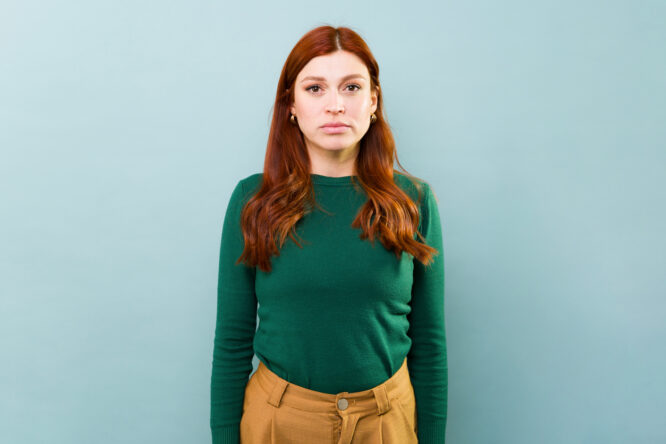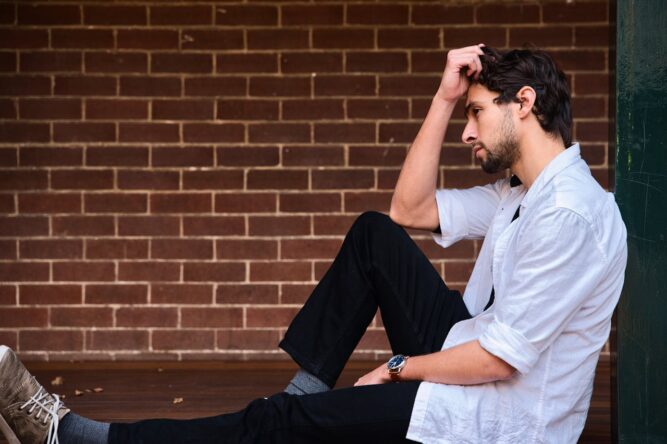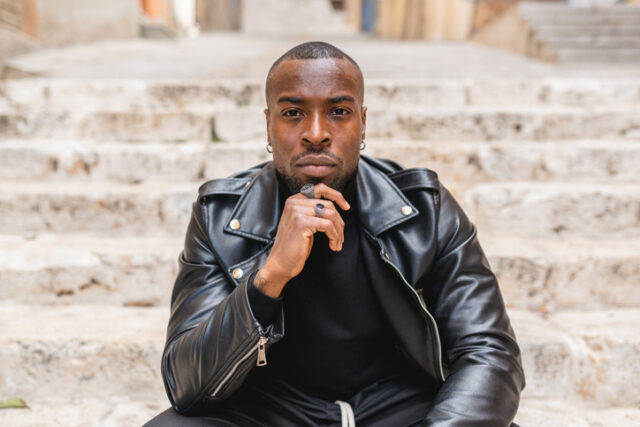Being bisexual isn’t a phase or a footnote—it’s a full identity.

However, when you’re looking for something real and solid, especially in relationships, it can come with a unique set of fears most people don’t talk about openly. You want something that lasts, but there’s this constant hum of doubt—not about who you are, but about how people see you. The worst part is, these fears don’t just come from outside. Sometimes they sneak in from within, too. Here are some of the biggest worries that tend to show up when you’re bi and looking for love.
1. Worrying people will always see you as indecisive

It’s frustrating how often being bi gets reduced to confusion, like you’re just sitting on the fence or still figuring yourself out. So when you do want a serious relationship, there’s this fear that people won’t take it seriously, or that they’ll think you’re just passing through. Even if you know exactly what you want, that stereotype can hang over your head. It makes you feel like you have to work twice as hard to prove your feelings are real, which gets exhausting fast.
2. Being scared your partner will never fully trust you

Some people assume being bi means you’re more likely to cheat or that you’re never fully satisfied in a monogamous relationship. It’s not true, but it still affects how people see you, and how they behave around you. You might start over-explaining things, trying to prove you’re loyal, even when no one’s asked. Deep down, there’s that fear that someone will always be quietly wondering if you’re looking elsewhere.
3. Feeling like you don’t fully belong anywhere

In straight spaces, you might feel too queer. In queer spaces, you might feel not queer enough. It creates this odd in-between state where you’re not sure if you’re really welcome or just being tolerated. When you’re trying to build something stable, that feeling of not fully belonging makes it harder. You want a relationship that feels rooted, but it’s tough to feel grounded when you’re constantly second-guessing your place in the room.
4. Wondering if your queerness will be erased in a relationship

If you’re with someone of the opposite gender, people might assume you’re straight. If you’re with someone of the same gender, people might assume you’re gay. Either way, your bisexuality tends to disappear in other people’s eyes. That invisibility starts to wear on you. You want to be seen for all of who you are, not just the part that fits neatly into someone else’s understanding of relationships. Being in love shouldn’t mean hiding a part of yourself.
5. Feeling like you always have to explain yourself

Every new relationship or dating experience seems to come with questions. Are you sure? Do you have a preference? Have you been with both? It stops being curiosity and starts feeling like an interrogation. It’s tiring, especially when you’re just trying to connect with someone and build something real. You don’t want to be someone’s experiment or lesson; you want to be someone’s person. Sadly, the explaining never seems to end.
6. Being scared you’ll get rejected once you’re honest

Some people are chill with it until it becomes real. You tell them you’re bi, and suddenly the vibe changes. Maybe they pull away. Maybe they get weird. You feel it in the pause, the changed tone, the sudden distance. That fear makes it tempting to stay quiet, to leave it out of conversations. Of course, that just builds distance, too. It’s a catch-22; say nothing and feel fake, or say something and risk losing someone before anything even starts.
7. Worrying your partner might fetishise your identity

There’s a real fear of being seen as a fantasy rather than a person. Some people hear “bi” and immediately think of threesomes or wild stories, without caring who you actually are or what kind of relationship you want. It’s uncomfortable having to constantly navigate whether someone likes you, or just the idea of you. Especially when all you really want is something emotionally grounded and real, not performative or flashy.
8. Feeling pressure to prove you’re not secretly craving variety

The myth that being bi means you’re never satisfied is hard to shake. Even in committed relationships, you might feel like you’re being watched for signs of boredom, like any interest in someone else means something bigger than it really does. That pressure builds over time. You want to be trusted without having to constantly prove yourself. But the fear is there, especially if a partner has internalised those same old stereotypes without realising it.
9. Worrying that even supportive people don’t really get it

Sometimes the people closest to you say they support you, and they probably mean it. But then they make comments that show they don’t fully understand. It’s not cruel, but it still stings. It makes you wonder whether a stable relationship is going to include constant teaching moments or subtle misunderstandings you have to let slide. That lack of full understanding chips away at emotional safety over time.
10. Fearing you’ll always feel like you’re holding back

When you’re bi, there’s this constant question of how much to share. Do you talk about your past relationships? Do you say you’re bi up front, or wait until you feel safe? Even in stable partnerships, there’s hesitation. It’s not about hiding who you are—it’s about protecting it. However, that need for protection can keep you feeling slightly outside the relationship, like you’re never quite showing your full self.
11. Feeling judged for your dating history

Even when you’re totally open about your identity, some people still get stuck on the details. They want to know how many men, how many women, when, how, and why. It turns something normal into something suspicious. When you’re trying to build something steady, that judgement can shake your confidence. You want to feel like your past is just that—the past. Not some test you have to pass before being seen as trustworthy.
12. Being afraid your needs won’t be taken seriously

Some people assume that if you’re bi, you must be more open-minded, less emotional, or less interested in traditional relationship dynamics. That assumption makes it harder to ask for stability, commitment, or clarity without being brushed off. You might worry that asking for something steady will make people think you’re boring or closed off. But the truth is, everyone deserves a relationship that feels secure, no matter who they’re attracted to.
13. Feeling like you’re constantly managing how people see you

In some spaces, you might feel like you need to emphasise the queer side of yourself to be accepted. In others, you might find yourself downplaying it to avoid awkward conversations or assumptions. It’s a constant game of adjusting, translating, softening. That kind of emotional editing gets exhausting. It makes it harder to relax into something stable when part of you is always scanning the room, wondering how much of yourself is safe to show.
14. Worrying there’s no relationship that lets you be all of you

At the heart of it all is the fear that being bi and wanting something stable are somehow incompatible, like you’ll always have to pick between being understood and being in love, and that’s a hard fear to carry. Of course, it’s not true. The challenge is real, but so is the possibility. You deserve something solid that doesn’t erase who you are, doesn’t question your loyalty, and doesn’t treat your identity like a problem to solve. It’s not too much to ask, even if it feels that way sometimes.




